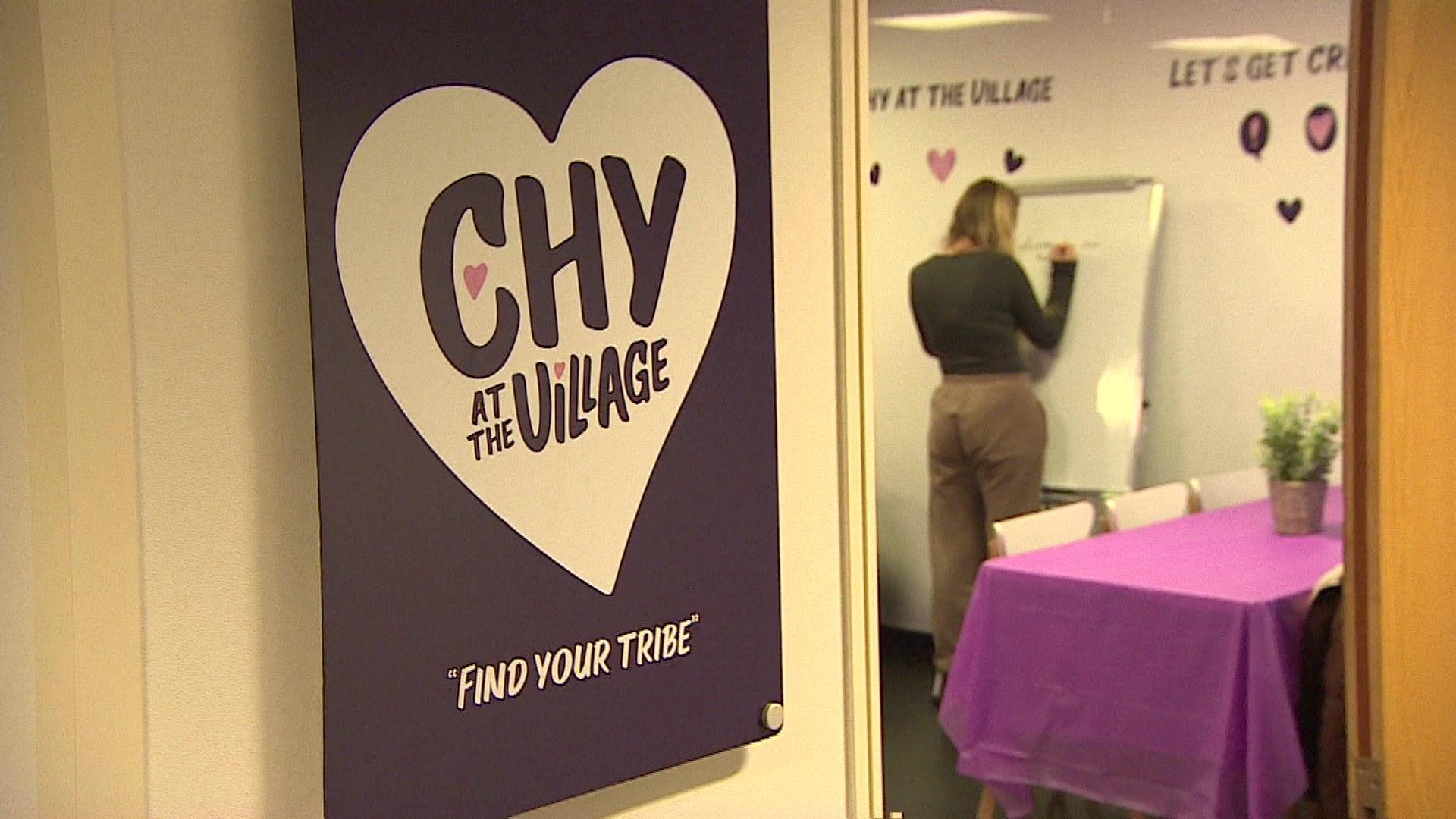New app to tackle 'crisis' of worklessness
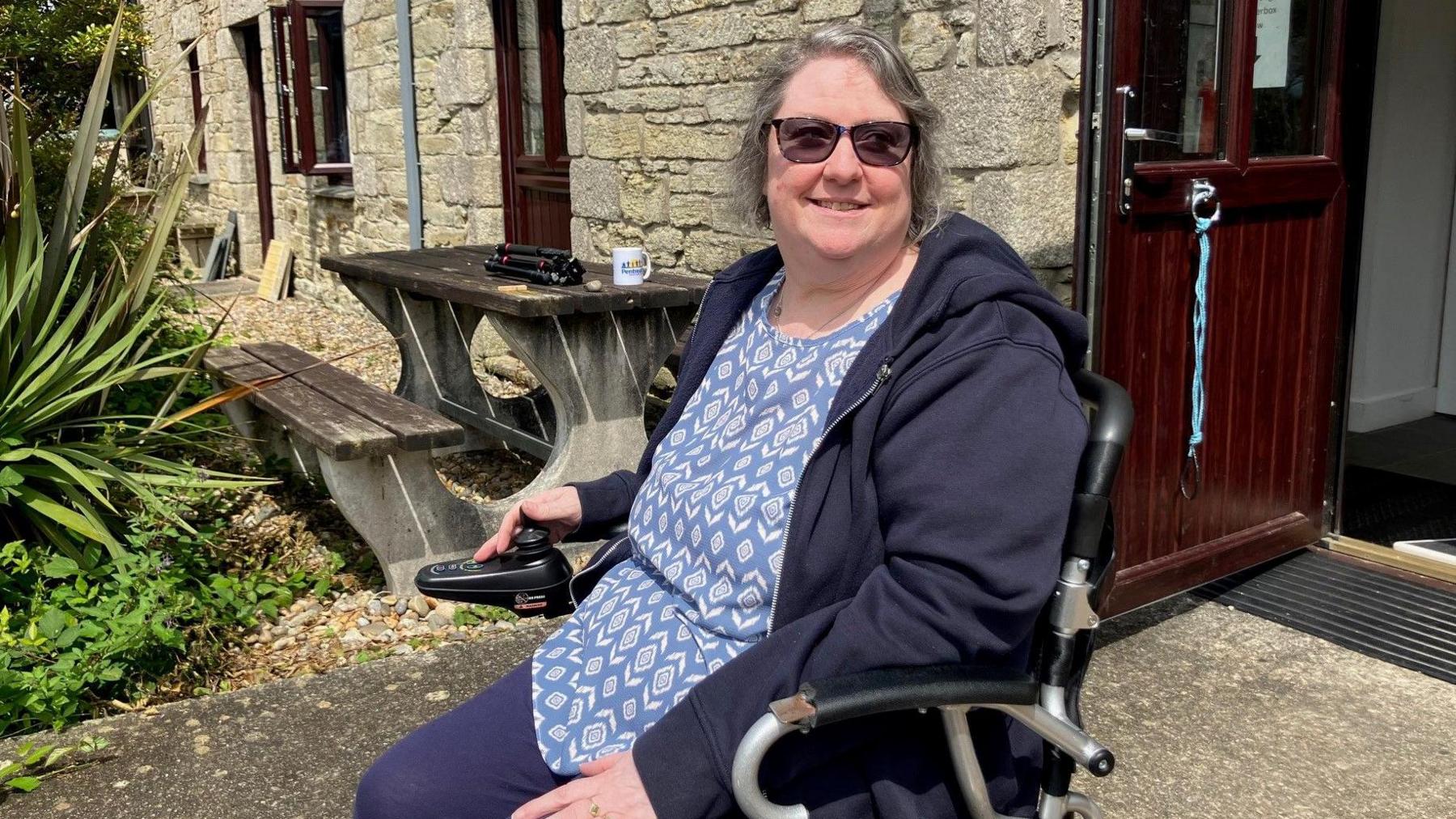
Michele Hoskin says her experience of disability helps her empathise with callers
- Published
The government has launched a fund to help people with health problems to stay in or return to work.
NHS leaders in Cornwall say there's "a real crisis in the number of people falling out of work all together because of struggles managing their physical or mental health".
Cornwall is one of 15 regions benefiting from WorkWell funding, which provides a package of support including mentoring and training for people with health issues.
A new app and social media posts to publicise the service have been launched as part of the programme.
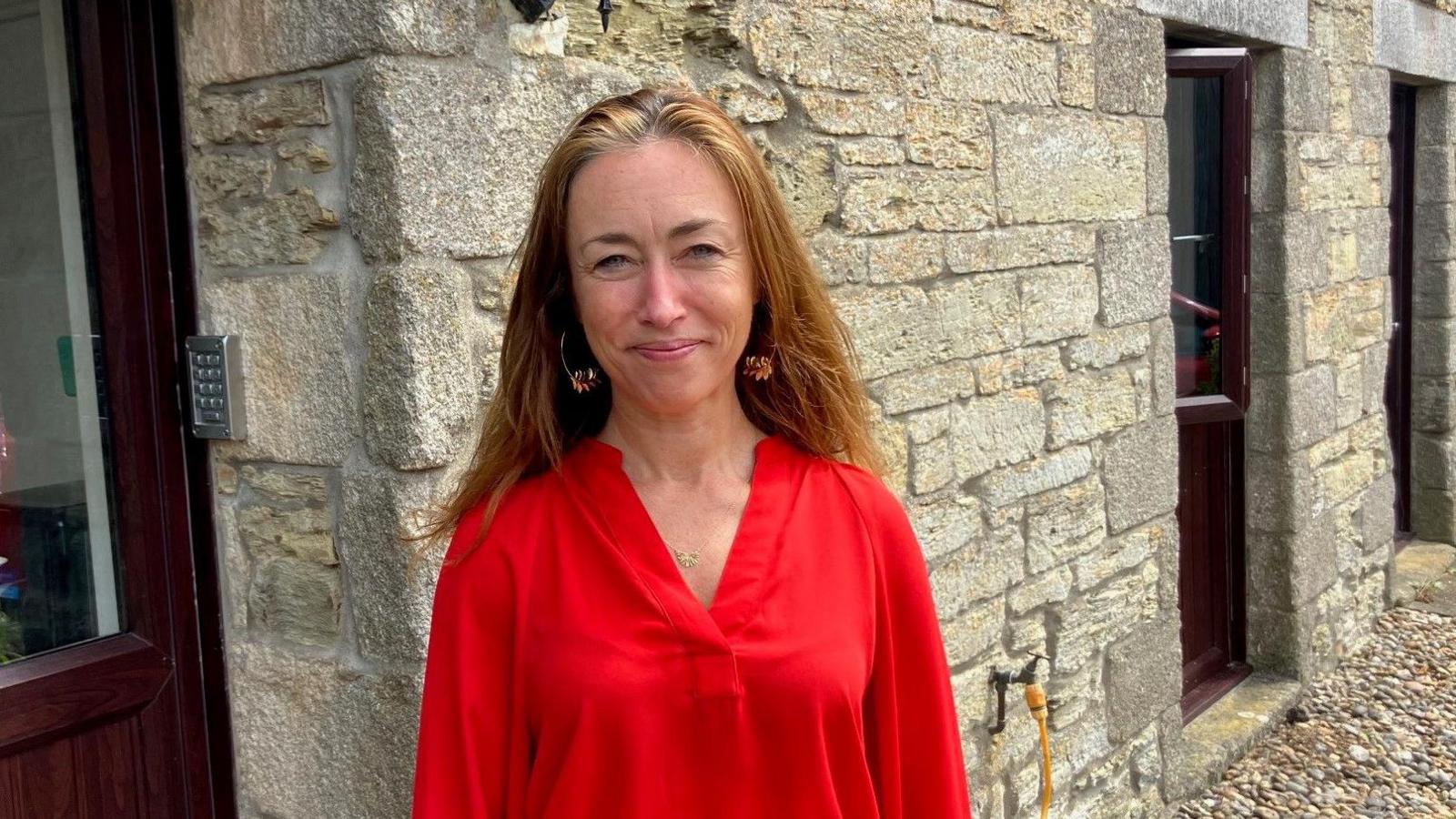
NHS Cornwall and Isles of Scilly Work Well programme lead Jessie Leigh said there was "a real crisis"
About a quarter of the working age population - those aged 16 to 64 - do not currently have a job. That is about 11 million people.
Jessie Leigh, who is heading up the new local WorkWell service, said: "We're seeing a real crisis in the number of people who are falling out of the labour market because of struggles managing their physical or mental health.
"Worklessness is really bad for people's long-term health outcomes, and it's also really bad for our economy because we just don't have the workforce.
"Too often the debate is framed around getting people off benefits, but the aim of this is to help people achieve good health.
"Work gives us meaning and purpose; it gives us social connection and it gives us money to fund life's essentials and, hopefully, some fun as well."
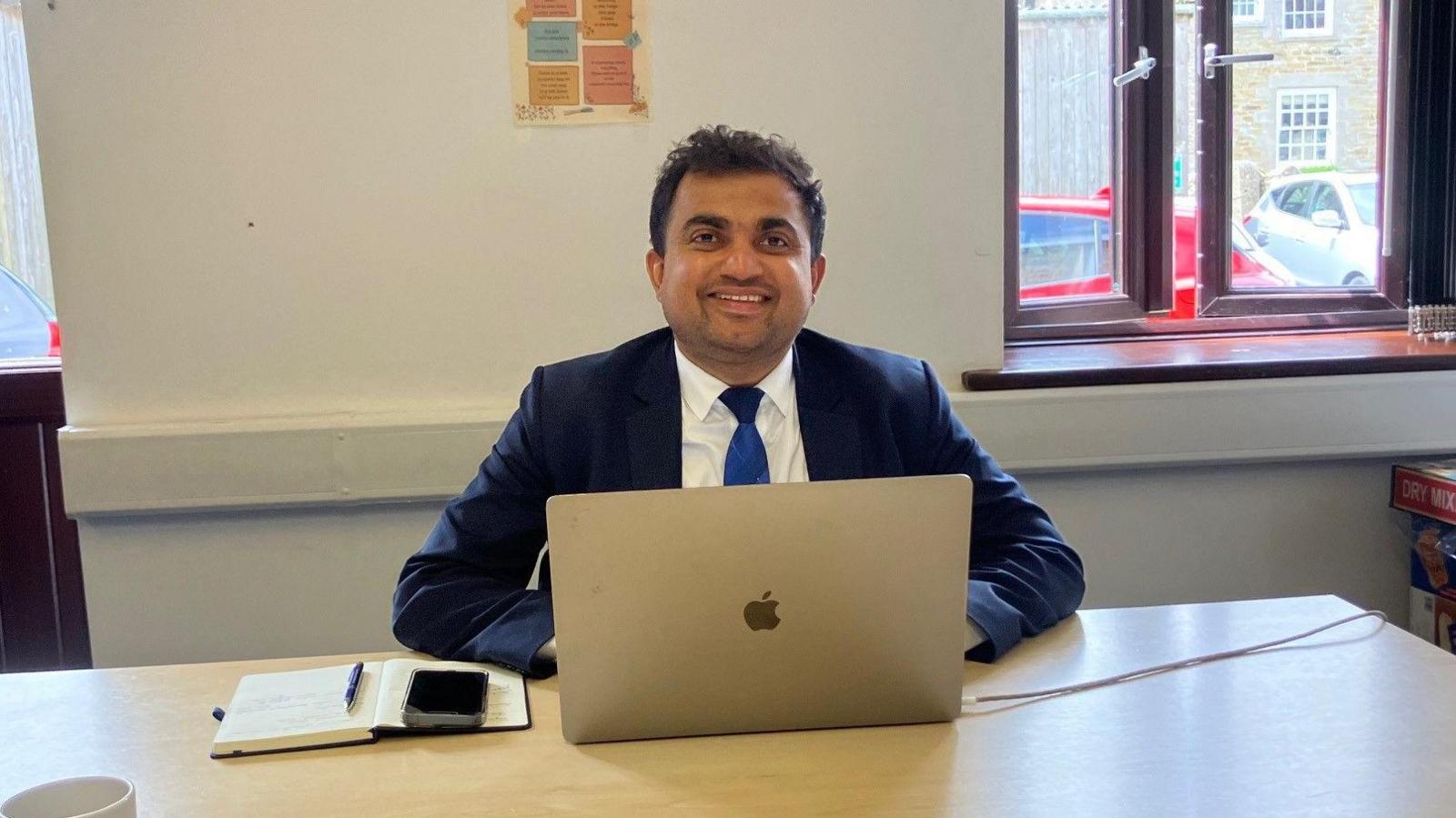
Prasannajeet Mane designed the new WorkWell mental health app
The service's new app was designed by developer Prasannajeet Mane.
He said that mental health was "one of the biggest reasons why people are struggling at work or out of work".
Asked how an app could help, he said: "When it comes to mental health support, there is a big supply and demand issue; there are not enough trained therapists.
"Using digital tools helps people access support and empowers them to take care of their own mental health.
"This work also represents a unique example of local Department of Work and Pensions and the Department of Health and Social Care collaboration to deliver on the government's Get Britain Working agenda."
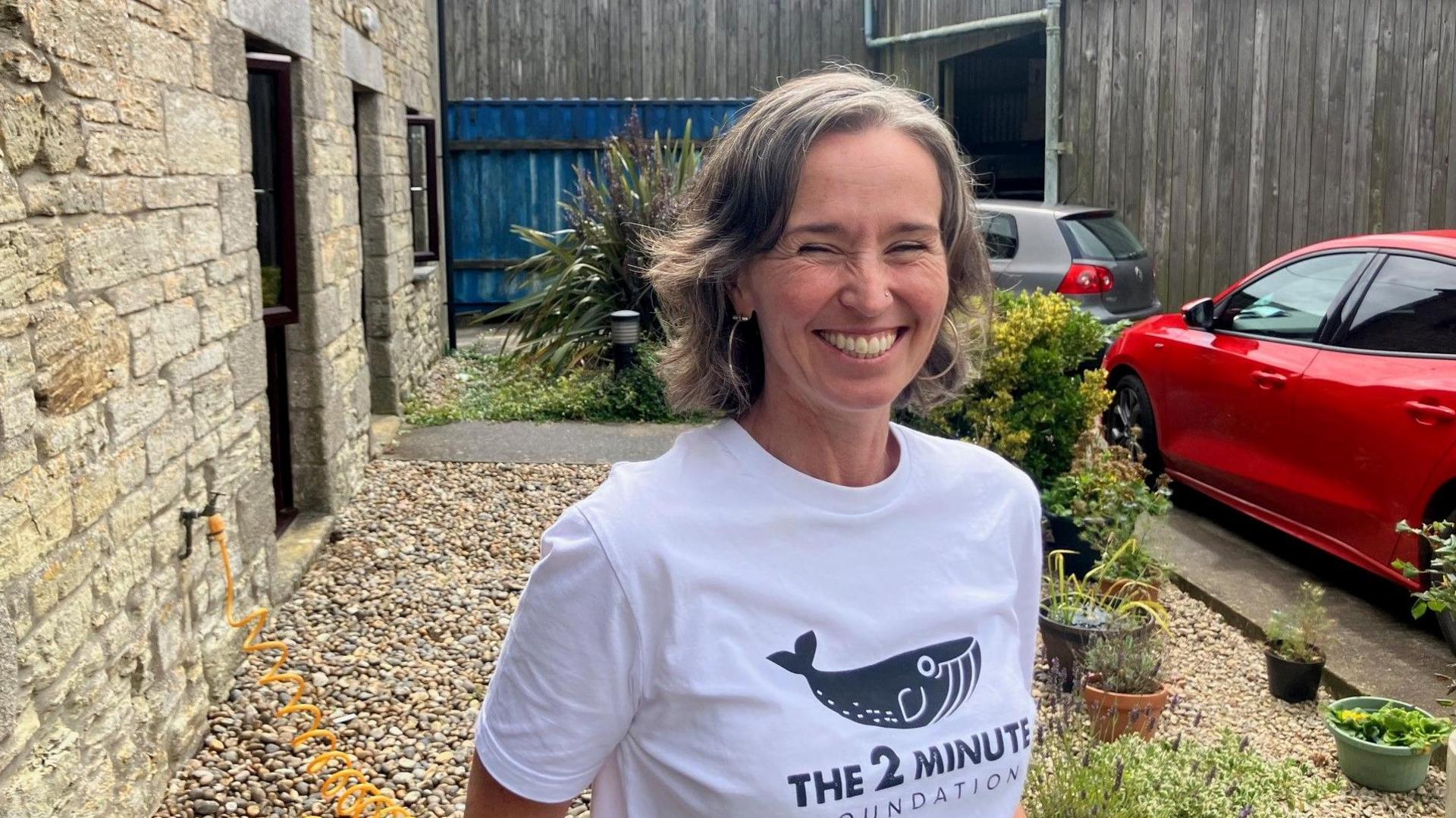
Josie Dean lives with fibromyalgia and has struggled to stay in work
Josie Dean lives in Bude and has fibromyalgia which has caused her to have long periods off work.
She said: "It's an invisible condition, so what people see is a shiny, happy person but that's not the full extent of what's going on... Sometimes I can be an effective worker, but other times I need to crash out in the middle of the day.
"Some people often think you don't have a real condition and others think you're faking it, but I desperately wanted to work."
She is a user of the new app and said: "I live in Bude, which is a million miles from anywhere. I would love to get more in-person support, but having this app in my pocket means I can dip in to support in the moment I need it."
Michele Hoskin works handling calls to a dedicated helpline. She is the first person callers speak to after getting a referral from their GP.
Michele, a wheelchair user, said: "If you've been through that journey yourself, you are going to have that empathy for other people.
"Some people prefer a digital space rather than talk to a real person, especially when there's sensitive issues like mental health being discussed.
"But, if they prefer person-to-person contact, then we're just at the end of the phone."
Follow BBC Cornwall on X, external, Facebook, external and Instagram, external. Send your story ideas to spotlight@bbc.co.uk, external.
Related topics
- Published26 March

- Published6 May
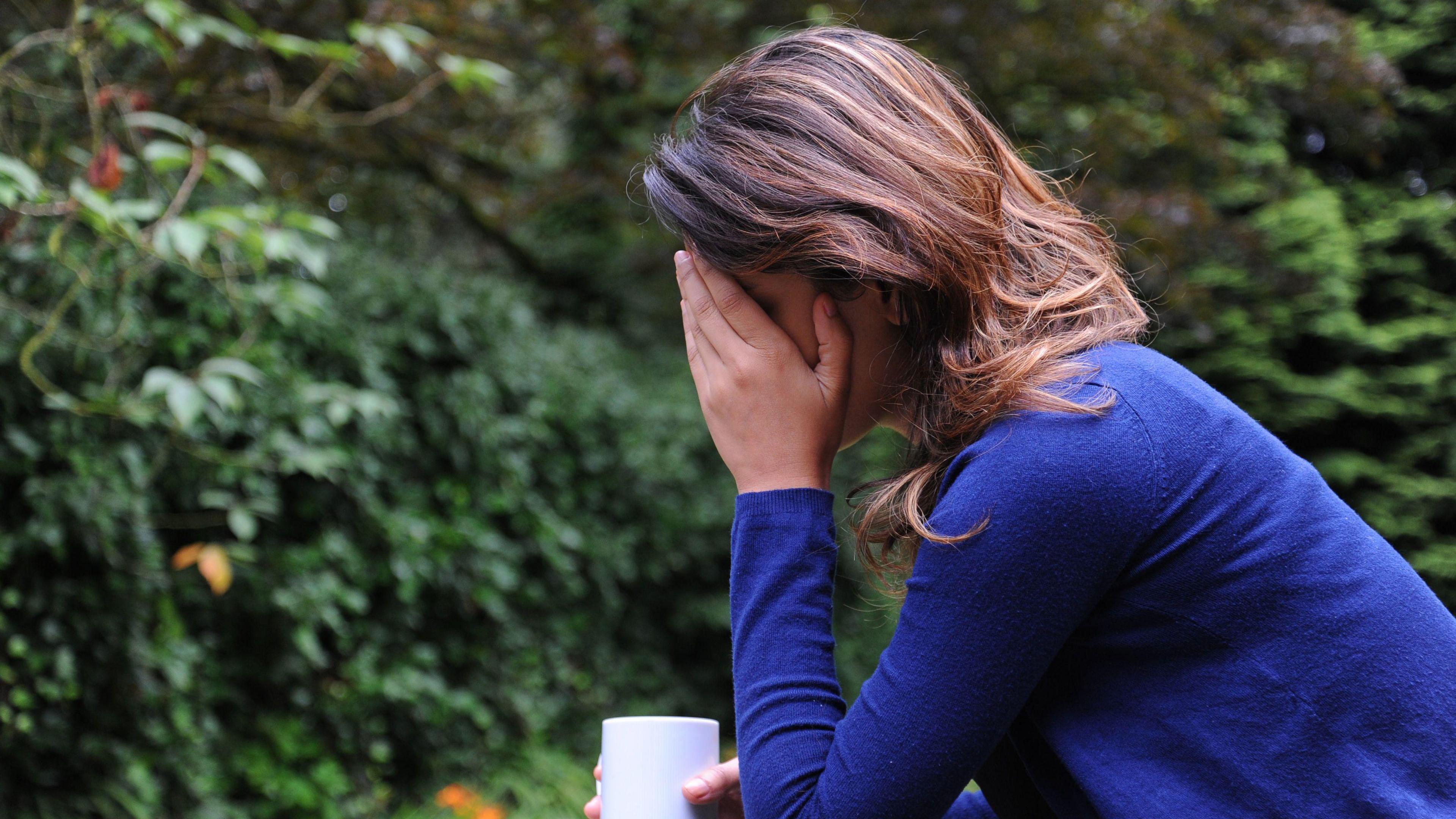
- Published21 January
